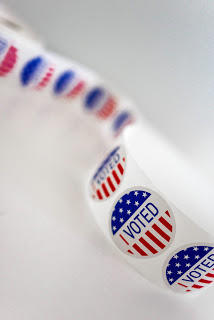Election season is here, which means temperatures are cooling down, political ads are heating up and cybercriminals are ready to take advantage of the chaotic atmosphere.
The 2016 presidential election saw unprecedented misinformation and disinformation campaigns. We expect more of the same as we enter the home stretch before Election Day on November 3, along with email scams meant to steal personal or business information.
Colorado Secretary of State Jena Griswold has launched an initiative to fight foreign interference, but it’s up to each of us to stay alert and protect ourselves. You may receive emails about the election, candidates, results, or other enticing information tailor-made to share. Remain skeptical and always check with legitimate sources, such as GoVoteColorado.gov, before sharing with your family and friends.
With just over a week to go, we all play a role in upholding the integrity of our democratic right to vote. Here’s what to look out for as we near the finish line:
- Ransomware is back with a vengeance, affecting state and local governments as well as businesses of all sizes. It is typically contracted through email (phishing), often as a malicious attachment or link. Be extra vigilant and never enable macros on an attachment sent to you unsolicited.
- An email requesting you to log in to a site (providing your username and password) to view an attached document is the most common way credentials may be stolen. Either contact the sender to verify its legitimacy or simply delete! Protect yourself with two-factor authentication any place it’s offered—your personal email is likely the key to unlocking the rest of your accounts.
- Misinformation and disinformation come in many forms, so think before you link. Check several sources before sharing content on social media or through email and be wary of content that is meant to manipulate your emotions or sow distrust and division.
Today's blog comes from Deborah Blyth, OIT's Chief Information Security Officer

